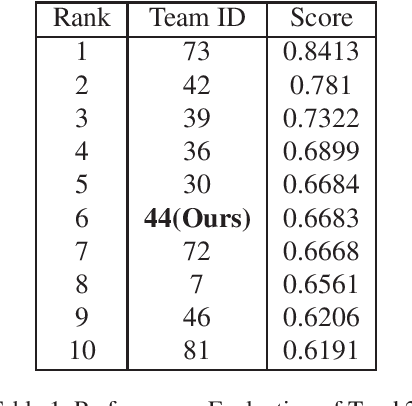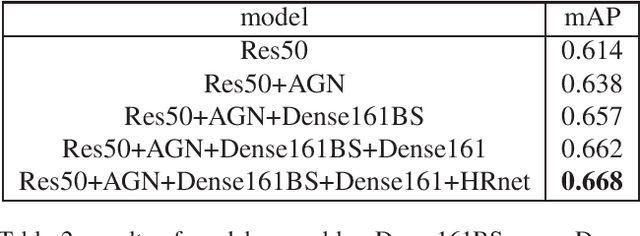Jiangbo Ai
Efficient DETR: Improving End-to-End Object Detector with Dense Prior
Apr 03, 2021



Abstract:The recently proposed end-to-end transformer detectors, such as DETR and Deformable DETR, have a cascade structure of stacking 6 decoder layers to update object queries iteratively, without which their performance degrades seriously. In this paper, we investigate that the random initialization of object containers, which include object queries and reference points, is mainly responsible for the requirement of multiple iterations. Based on our findings, we propose Efficient DETR, a simple and efficient pipeline for end-to-end object detection. By taking advantage of both dense detection and sparse set detection, Efficient DETR leverages dense prior to initialize the object containers and brings the gap of the 1-decoder structure and 6-decoder structure. Experiments conducted on MS COCO show that our method, with only 3 encoder layers and 1 decoder layer, achieves competitive performance with state-of-the-art object detection methods. Efficient DETR is also robust in crowded scenes. It outperforms modern detectors on CrowdHuman dataset by a large margin.
Attribute-guided Feature Extraction and Augmentation Robust Learning for Vehicle Re-identification
May 13, 2020



Abstract:Vehicle re-identification is one of the core technologies of intelligent transportation systems and smart cities, but large intra-class diversity and inter-class similarity poses great challenges for existing method. In this paper, we propose a multi-guided learning approach which utilizing the information of attributes and meanwhile introducing two novel random augments to improve the robustness during training. What's more, we propose an attribute constraint method and group re-ranking strategy to refine matching results. Our method achieves mAP of 66.83% and rank-1 accuracy 76.05% in the CVPR 2020 AI City Challenge.
 Add to Chrome
Add to Chrome Add to Firefox
Add to Firefox Add to Edge
Add to Edge